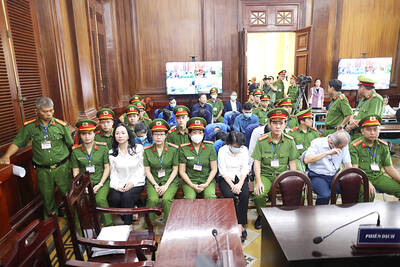Indian Prime Minister Narendra Modi dismissed al-Qaeda’s plan to set up a South Asia branch, saying it was “delusional” to think that the country’s Muslim minority would follow orders to wage jihad in the region.
“They are doing an injustice toward the Muslims of our country,” Modi said in an interview with CNN broadcast on Friday.
“If anyone thinks Indian Muslims will dance to their tune, they are delusional. Indian Muslims will live for India, they will die for India — they will not want anything bad for India,” he added.
It was Modi’s first reaction to al-Qaeda chief Ayman al-Zawahiri’s announcement this month that the group would set up a new operation to take the fight to India, which has a large, but traditionally moderate, Muslim population, as well as Myanmar and Bangladesh.
There have been relatively few reports of young Indian men leaving to fight extremist causes abroad, which experts say is because local grievances have kept them at home.
Modi said the threat from extremist groups was “a crisis against humanity, not a crisis against one country or one race.”
Modi’s Bharatiya Janata Party was accused during the election campaign of trying to polarize votes along religious lines.
However, in a widely-praised Independence Day speech last month, Modi said communal violence was “stalling the growth of the nation” and had gone on for “too long.”

Republican US lawmakers on Friday criticized US President Joe Biden’s administration after sanctioned Chinese telecoms equipment giant Huawei unveiled a laptop this week powered by an Intel artificial intelligence (AI) chip. The US placed Huawei on a trade restriction list in 2019 for contravening Iran sanctions, part of a broader effort to hobble Beijing’s technological advances. Placement on the list means the company’s suppliers have to seek a special, difficult-to-obtain license before shipping to it. One such license, issued by then-US president Donald Trump’s administration, has allowed Intel to ship central processors to Huawei for use in laptops since 2020. China hardliners

A top Vietnamese property tycoon was on Thursday sentenced to death in one of the biggest corruption cases in history, with an estimated US$27 billion in damages. A panel of three hand-picked jurors and two judges rejected all defense arguments by Truong My Lan, chair of major developer Van Thinh Phat, who was found guilty of swindling cash from Saigon Commercial Bank (SCB) over a decade. “The defendant’s actions ... eroded people’s trust in the leadership of the [Communist] Party and state,” read the verdict at the trial in Ho Chi Minh City. After the five-week trial, 85 others were also sentenced on

Conjoined twins Lori and George Schappell, who pursued separate careers, interests and relationships during lives that defied medical expectations, died this month in Pennsylvania, funeral home officials said. They were 62. The twins, listed by Guinness World Records as the oldest living conjoined twins, died on April 7 at the Hospital of the University of Pennsylvania, obituaries posted by Leibensperger Funeral Homes of Hamburg said. The cause of death was not detailed. “When we were born, the doctors didn’t think we’d make 30, but we proved them wrong,” Lori said in an interview when they turned 50, the Philadelphia Inquirer reported. The

RAMPAGE: A Palestinian man was left dead after dozens of Israeli settlers searching for a missing 14-year-old boy stormed a village in the Israeli-occupied West Bank US President Joe Biden on Friday said he expected Iran to attack Israel “sooner, rather than later” and warned Tehran not to proceed. Asked by reporters about his message to Iran, Biden simply said: “Don’t,” underscoring Washington’s commitment to defend Israel. “We are devoted to the defense of Israel. We will support Israel. We will help defend Israel and Iran will not succeed,” he said. Biden said he would not divulge secure information, but said his expectation was that an attack could come “sooner, rather than later.” Israel braced on Friday for an attack by Iran or its proxies as warnings grew of